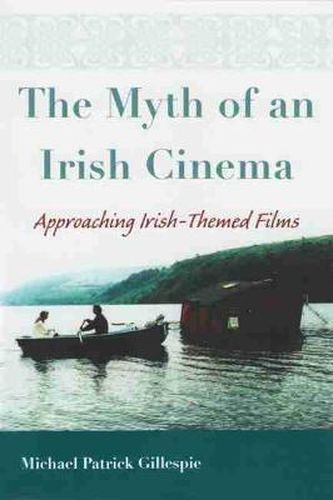Readings Newsletter
Become a Readings Member to make your shopping experience even easier.
Sign in or sign up for free!
You’re not far away from qualifying for FREE standard shipping within Australia
You’ve qualified for FREE standard shipping within Australia
The cart is loading…






For the past seventy years the discipline of film studies has widely invoked the term national cinema. Such a concept suggests a unified identity with distinct cultural narratives. As the current debate over the meaning of nation and nationalism has made thoughtful readers question the term, its application to the field of film studies has become the subject of recent interrogation. In
The Myth of an Irish Cinema , Michael Patrick Gillespie presents a groundbreaking challenge to the traditional view of filmmaking, contesting the existence of an Irish national cinema. Given the social, economic, and cultural complexity of contemporary Irish identity, Gillespie argues, filmmakers can no longer present Irishness as a monolithic entity.The book is arranged thematically, with chapters exploring cinematic representation of the middle class, urban life, rural life, religion, and politics. Offering close readings of Irish-themed films, Gillespie identifies a variety of interpretative approaches based on the diverse elements that define national character. Covering a wide range of films, from John Ford’s
The Quiet Man
and Kirk Jones’
Waking Ned Devine
to Bob Quinn’s controversial
Budawanny
and
The Bishop’s Story ,
The Myth of an Irish Cinema
signals a paradigm shift in the field of film studies and promises to reinvigorate dialogue on the subject of national cinema.
$9.00 standard shipping within Australia
FREE standard shipping within Australia for orders over $100.00
Express & International shipping calculated at checkout
For the past seventy years the discipline of film studies has widely invoked the term national cinema. Such a concept suggests a unified identity with distinct cultural narratives. As the current debate over the meaning of nation and nationalism has made thoughtful readers question the term, its application to the field of film studies has become the subject of recent interrogation. In
The Myth of an Irish Cinema , Michael Patrick Gillespie presents a groundbreaking challenge to the traditional view of filmmaking, contesting the existence of an Irish national cinema. Given the social, economic, and cultural complexity of contemporary Irish identity, Gillespie argues, filmmakers can no longer present Irishness as a monolithic entity.The book is arranged thematically, with chapters exploring cinematic representation of the middle class, urban life, rural life, religion, and politics. Offering close readings of Irish-themed films, Gillespie identifies a variety of interpretative approaches based on the diverse elements that define national character. Covering a wide range of films, from John Ford’s
The Quiet Man
and Kirk Jones’
Waking Ned Devine
to Bob Quinn’s controversial
Budawanny
and
The Bishop’s Story ,
The Myth of an Irish Cinema
signals a paradigm shift in the field of film studies and promises to reinvigorate dialogue on the subject of national cinema.